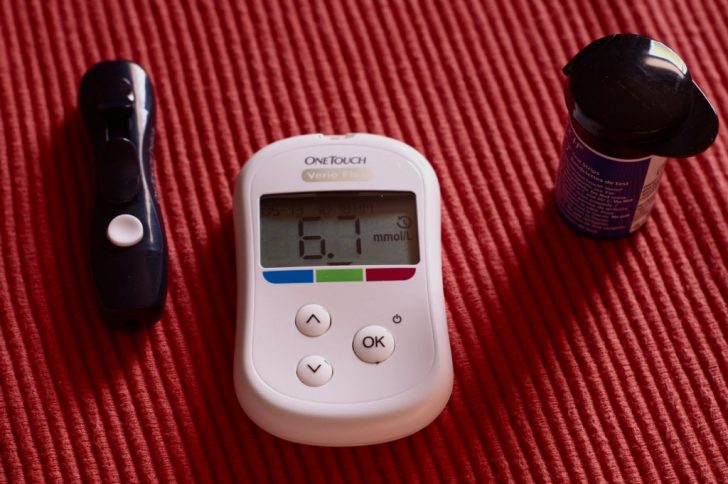
Are You at Risk of Diabetes? Here are the Symptoms You Need to Watch Out For

Diabetes is the common fate of most people who are negligent of their health and well-being, and sometimes evolves into a more serious ailment if diagnosed late. In fact, according to recent studies, age is no longer a determinant of the disease as it can be found in children as young as five years old. Thus, you should make constant efforts to maintain your body sugar levels and ensure that you do not have the disease.

Unsplash | Maintaining a healthy diet keeps you safe from illnesses
Learning about diabetes is critical because it could grasp you at any age and stage of life. If gone undetected, it could cause serious health problems, so, by learning about it beforehand, and leaning on the side of caution, you can help prevent diabetes or overcome it.
There are two major types of diabetes: type 1 and type 2 diabetes, differing on the basis of their causes.
Symptoms of diabetes
The symptoms of diabetes can be a warning bell for you to get alert and get yourself tested because you might just have become a patient of one of the two types of diabetes. These signs include frequent urination, itchy and dry skin, extreme thirst and hunger, fatigue, yeast infection, and wounds that take longer to heal than normal.
Type 1 diabetes could additionally cause sudden weight loss, breathing problems, vomiting, and bad breath. It may cause the wetting of bed after a long period of dry at night.
Other than the basic symptoms of diabetes in general, patients with Type 2 diabetes may experience a range of other symptoms like the slow recovery of wounds, excessive swelling, and in a critical case, it could be the cause of cardiac problems.

Unsplash | One should check blood sugar immediately if symptoms of diabetes present themselves
What to do if you exhibit symptoms of diabetes?
If you ever suspect yourself of possessing any of these conditions, do not delay a visit to the doctor. The health practitioner would make a complete assessment of your condition, symptoms, medication, and family history. Knowing your family history is an important first step in your diagnosis because diabetes tends towards being hereditary.
Doctors may also require some lab tests to be done. A1c test finds the average glucose level in 3 months. Oral glucose tolerance(OGTT) tests the impact of a sweet beverage before and after consuming it. Fasting plasma glucose (FPG) requires fasting of 8hrs for a valid sample. These tests allow the doctors to determine the type of diabetes and the stage of the patient’s illness.
Diabetes is not a chronic illness, and if you test for it, do not fret, because you could lead a healthy and long life even with the disease, as long as you engage in regular exercise and monitor your diet to avoid any spikes in sugar level. Patients with type 1 diabetes are required to take insulin for the rest of their lives, as the body stops producing insulin because of it.
Type 2 diabetes patients, however, can improve their health through physical activities and a careful diet plan that has lower levels of carbohydrates and sugar. They could also be recommended insulin by the doctor to regulate their glucose levels.

Deposit Photos | Stay healthy by making the correct dietary choices
Diabetes, like other nonchronic illness, might affect your lifestyle, but it will not end your life. If you or your loved ones exhibit symptoms of the disease, consult a doctor, and follow the guidelines provided to you so that you can live a long and active life.
More in Health & Well-being
-
`
Here’s Everything You Need to Know About Open Relationships
An open relationship is a consensual arrangement where partners agree to engage in romantic or sexual relationships with other people. Unlike...
June 6, 2024 -
`
Explore the Multifaceted Goals of Meditation
What is the goal of meditation? If you have ever found yourself asking this question, you are not alone. Meditation has...
May 31, 2024 -
`
When is National I Love You Day Celebrated? Mark Your Calendar
Life can get hectic, and sometimes amidst the daily grind, we forget to express our love and appreciation for the phenomenal...
May 23, 2024 -
`
When’s the Best Time of Day to Fish?
For any angler, a successful fishing trip hinges on several factors. But one of the most crucial elements is timing. Knowing...
May 14, 2024 -
`
What Mental Illness Does Britney Spears Have? Discovering the Answer
Britney Spears, a name that resonates with millions around the globe, goes far beyond the glitz and glamour of her stardom....
May 7, 2024 -
`
Here Are Some Easy Ways To Say No To Unrealistic Expectations In Your Relationship
If you are in a relationship, you should constantly work on improving it. Some early lovebirds fall in love too quickly...
May 3, 2024 -
`
Therapy? Medication? What Are the Treatments for PTSD
Post-Traumatic Stress Disorder (PTSD) is a common after-effect of traumatic events. It can be a debilitating condition, but the good news...
April 25, 2024 -
`
Courting vs Dating – Which Relationship Path is Right for You?
In today’s fast-paced world, the terms ‘courting’ and ‘dating’ often swirl around in conversations about relationships. While some people may use...
April 23, 2024 -
`
Essential Mexico Travel Tips for a Seamless Adventure
Mexico, a land of vibrant culture, breathtaking landscapes, and mouthwatering cuisine, beckons travelers from across the globe. But before you embark...
April 16, 2024















You must be logged in to post a comment Login